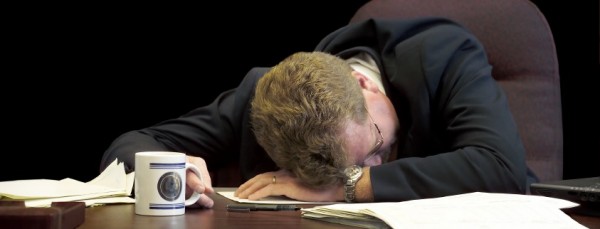[Excerpt from upcoming book, Spiritual Influence: The Hidden Power Behind Leadership]
When we are honest we will admit to God and to the appropriate people in our lives when we have failed. There is just no reason to hold back—though almost every one of us does. (This is not to say that one’s failures are everybody’s business. Discretion must go hand-in-hand with confession.) Pretending we are something that we are not simply sets us up for the most devastating failure of all—some calamitous fall because of pride.
But on the other hand there is this problem: when we live with a constant sense of inadequacy, guilt, and failure, we are hobbled. We should have humility, but we cannot lead out of a sense of humiliation. “Failure” is not supposed to be an identity.
And as if this isn’t complicated enough, some leaders who feel profoundly insecure compensate with a forced self-confidence. It is the worst of both worlds: inadequacy clothed in bravado. It may be more common than any of us imagine.
Here are some practical steps in dealing with a pervasive sense of failure:
When we know that we are recovering from some significant failure on our part, we should accept the embarrassment and self-disappointment, but process what happened with trusted friends, coworkers, mentors, or other counselors. It might be helpful for us to think of this like a grief process. Ecclesiastes 7:2–4 talks about going into “the house of mourning” for a season. It is not where we are meant to live permanently, but it is the appropriate state of mind while we work through the sense of loss that always accompanies failure.
When we are coming through failure, we should turn this period into a time of learning. The wisest and best leaders have learned from their mistakes instead of denying them. It is painful when we review a time of failure, especially as it uncovers our own shortcomings. But when we do so, with other people who are fair-minded, trustworthy, and perceptive, we will be in a better state to move on.
Learn caution through failure, but do not become overly cautious. There is a fine balance here. Some failures teach us where we were careless, overly ambitious, or overconfident, and so the failure teaches us to rein ourselves in. But if we play it too safe as we move ahead, then the failure has effectively shut us down.
When we have a sense of failure but other people we trust assure us that it is just our self-perception, not based in reality, then we have to figure out where that insecurity is coming from. It may come from a string of disappointments that have produced a pervasive sense of nervousness. It may come from experiences in an entirely different area of life—like a leader struggling in a marriage—and that results in a sense of failure everywhere. Sometimes insecurity is a matter of temperament. It has been there all along, lurking under the surface. [To be continued…]
[from Spiritual Influence: The Hidden Power Behind Leadership]
What do you think?

Both of these articles on failure have been spot on. Thanks!
This is a timely message. I believe that champions did not emerge from a vacuum but they are people who have failed many times and are not afraid to try again. I once read of Abraham Lincoln who failed many times but he did not give up. What about King David, Solomon, Samson etc? Particularly Samson who failed God but he confessed and he did God proud before his death (Judges 16:23:31).
Our God is a God of second chance for it is said, “confession is good for the soul.” If we do not confess, we will not proper in our spiritual lives (Prov.28:13). A lack of confession of sins has made many believers spiritual babes. May the Lord help us to be genuine before Him who sees and knows everything about us
Personally, I think i’m more afraid of the rejection (or maybe it’s shame) I’ve experienced from past failure than the failure itself. Then I focus on not failing (“don’t do this…don’t do that”), which takes my eyes off of Jesus. Maybe I’m merely trying to justify that I’m motivated by fear…
As a leader I think I need to help people fail well.
That’s a really good point, Josh. There are probably so many really great things that don’t happen because of our fear of rejection and looking in the rear-view mirror. We so need God’s help to let us deal humbly with the past, while not being trapped by it.
If we live in fear, fear of failure, of not being good enough, of anything that holds us back from doing our best. Then we are not living in Christ. Most often I find that when I feel this, it is a direct attack from you know who. If I’m honest with myself, I have to admit that if I am a child of God, then I have no reason to fear anything or anyone. That my Dad, is in control and all things will work out for my good.
There are reasons why “you know who,” as you put it, is called “The Accuser.”
Well put, Mel. Failure can cripple us, will shape us (for good or ill), but is also an incredible ally for growth. Fear of failure is a fear of growth. Fear of admitting failure is a fear of admitting we need to grow.
Too often we think that leadership necessitates perfection or, at the very least, the image of perfection. None of us are that, but hopefully we are growing into the image of Christ.
That image thing is so sneaky.